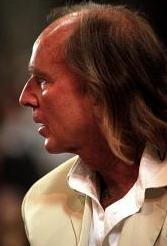Top 23 Quotes & Sayings by John Tavener
Explore popular quotes and sayings by a British composer John Tavener.
Last updated on November 22, 2024.
When I talk of primordial innocence, I hear it in Sufi music with the nay flute. I see it in Coptic icons, in most traditional art, particularly art of the American Indian. I find the texts extraordinarily beautiful and very childlike and very simple. I've been particularly interested in American Indian texts.
























